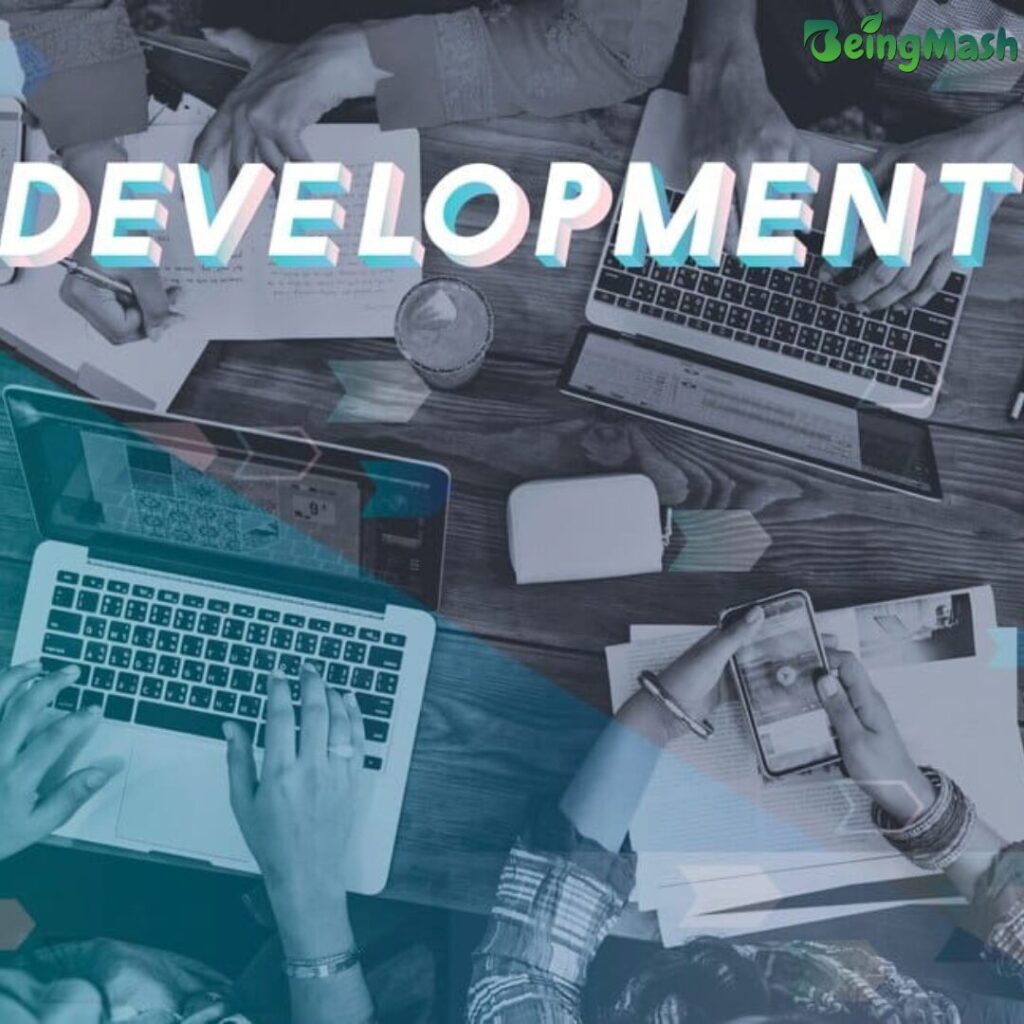In the age of rapid technological advancement, one innovation stands out as a true game-changer: artificial intelligence (AI). From enhancing productivity and revolutionizing industries to shaping our daily lives, AI has become an indispensable tool with far-reaching implications.
we’ll explore the transformative impact of AI, its applications across various sectors, and the opportunities it presents for the future.
Understanding Artificial Intelligence
At its core, artificial intelligence refers to the simulation of human intelligence by machines, enabling them to perform tasks that typically require human cognition, such as learning, reasoning, problem-solving, and decision-making.

AI systems are powered by algorithms and data, which enable them to analyze vast amounts of information, detect patterns, and make predictions or recommendations.
Applications of Artificial Intelligence
- Business and Industry: AI is revolutionizing business operations across industries, from finance and healthcare to manufacturing and retail.
- Businesses use AI-powered tools for predictive analytics, process automation, customer service, and personalized marketing, driving efficiency, and innovation.
- Healthcare: In healthcare, AI is used for medical imaging analysis, drug discovery, personalized treatment plans, and virtual health assistants.
- AI-powered diagnostic tools can detect diseases earlier and with greater accuracy, leading to improved patient outcomes.
- Finance: In the financial sector, AI algorithms are utilized for fraud detection, risk assessment, algorithmic trading, and customer service chatbots.
- AI-driven insights help financial institutions make data-driven decisions and optimize operations.
- Transportation: AI plays a crucial role in autonomous vehicles, traffic management systems, and predictive maintenance for transportation infrastructure.
- These technologies improve safety, efficiency, and sustainability in transportation networks.
- Education: AI-powered educational platforms offer personalized learning experiences tailored to individual students’ needs and preferences.
- Virtual tutors, adaptive learning systems, and automated grading tools enhance student engagement and academic outcomes.
Future Opportunities and Challenges
While AI presents immense opportunities for innovation and progress, it also poses challenges and ethical considerations. As AI technologies continue to advance, it’s essential to address concerns related to data privacy, algorithmic bias, job displacement, and societal impacts.
Additionally, ongoing research and development are needed to ensure AI systems are transparent, accountable, and aligned with human values and ethics.
Artificial intelligence is reshaping the world as we know it, transforming industries, driving innovation, and revolutionizing the way we live and work. By harnessing the power of AI, businesses and organizations can unlock new opportunities for growth, efficiency, and societal impact.
As we navigate the complexities of AI adoption, it’s crucial to approach its development and deployment responsibly, ethically, and with a focus on creating positive outcomes for humanity.
Embrace the potential of AI, and embark on a journey of endless possibilities in the digital age.
What Is Artificial Intelligence: App
Artificial intelligence (AI) applications are revolutionizing the way we interact with technology, offering innovative solutions to enhance efficiency, productivity, and convenience.
In the realm of mobile apps, AI-powered applications are making waves, providing users with intelligent features and personalized experiences tailored to their preferences and needs. Let’s explore some of the most impactful AI applications for mobile devices:

- Virtual Assistants: Virtual assistants like Siri, Google Assistant, and Alexa utilize AI algorithms to understand natural language commands and perform tasks such as setting reminders, sending messages, or answering questions
- Predictive Text and Autocorrect: AI-powered keyboards use predictive text algorithms to anticipate the words or phrases users are likely to type next, speeding up typing and reducing errors.
- Photo Editing and Enhancement: AI-powered photo editing apps employ machine learning algorithms to analyze and enhance images automatically.
- These apps can adjust brightness, contrast, and color balance, remove imperfections, and apply artistic effects to photos with minimal user input.
- Voice Translation: These apps leverage machine learning algorithms to improve translation accuracy and fluency, breaking down language barriers and facilitating communication across cultures.
- Health and Fitness Tracking: AI-powered health and fitness apps use machine learning algorithms to analyze user data, such as activity levels, sleep patterns, and dietary habits, to provide personalized recommendations and insights.
- Virtual Personal Trainers: AI-driven fitness apps offer personalized workout plans and coaching based on user preferences, fitness levels, and goals.
- These apps use machine learning algorithms to adapt workouts in real-time, providing feedback and guidance to users as they exercise.
- Recommendation Systems: These systems power recommendation features in e-commerce apps, streaming platforms, and social media networks, enhancing user engagement and satisfaction.
- Natural Language Processing (NLP) Apps: NLP-powered apps enable users to interact with technology using natural language commands or queries.
- These apps can perform tasks such as scheduling appointments, making reservations, or searching for information using conversational interfaces.
These are just a few examples of the diverse range of AI applications transforming the mobile app landscape. As AI technologies continue to advance, we can expect to see even more innovative and impactful AI-powered apps revolutionizing the way we live, work, and interact with technology.
What Is Artificial Intelligence: Services
One technology that is revolutionizing industries across the board is artificial intelligence (AI). From streamlining operations to enhancing customer experiences, AI services are empowering businesses to unlock new opportunities and achieve unprecedented growth.
In this blog post, we’ll explore the transformative impact of AI services on businesses and delve into the diverse applications driving success in the digital age.

Understanding Artificial Intelligence Services
Artificial intelligence services encompass a wide range of technologies and tools that leverage machine learning, natural language processing, and other AI techniques to automate processes, analyze data, and make intelligent decisions.
These services enable businesses to extract valuable insights from data, optimize operations, and deliver personalized experiences to customers.
Applications of Artificial Intelligence Services
- Data Analytics and Insights: AI-powered data analytics services enable businesses to analyze large volumes of data quickly and accurately, uncovering valuable insights and trends that drive informed decision-making.
- From predictive analytics to anomaly detection, AI services help businesses gain a competitive edge by leveraging data effectively.
- Customer Relationship Management (CRM): AI-powered CRM services enhance customer interactions by providing personalized recommendations, automating responses, and predicting customer behavior.
- By analyzing customer data and interactions, businesses can deliver targeted marketing campaigns, improve customer service, and increase customer satisfaction.
- Chatbots and Virtual Assistants: AI-driven chatbots and virtual assistants provide immediate assistance to customers, answering questions, resolving issues, and guiding users through transactions.
- These services find applications in industries ranging from retail and manufacturing to healthcare and security.
What Is Artificial Intelligence: Benefits of Artificial Intelligence Services for Businesses
- Increased Efficiency: AI services automate repetitive tasks, streamline workflows, and optimize resource allocation, enabling businesses to operate more efficiently and focus on strategic initiatives.
- Improved Decision-Making: By analyzing data and providing actionable insights, AI services help businesses make informed decisions, mitigate risks, and capitalize on emerging opportunities.
- Enhanced Customer Experience: AI-powered personalization and automation improve the customer experience by delivering relevant content, personalized recommendations, and timely support.
- Competitive Advantage: Businesses that leverage AI services gain a competitive edge by staying ahead of trends, adapting to changing market conditions, and meeting customer expectations more effectively.
Artificial intelligence services are transforming businesses across industries, enabling them to unlock new opportunities, drive innovation, and achieve sustainable growth.
By harnessing the power of AI, businesses can improve efficiency, enhance customer experiences, and gain a competitive advantage in the digital age.
As AI technologies continue to evolve, businesses must embrace these services to stay relevant and thrive in an increasingly competitive marketplace.



